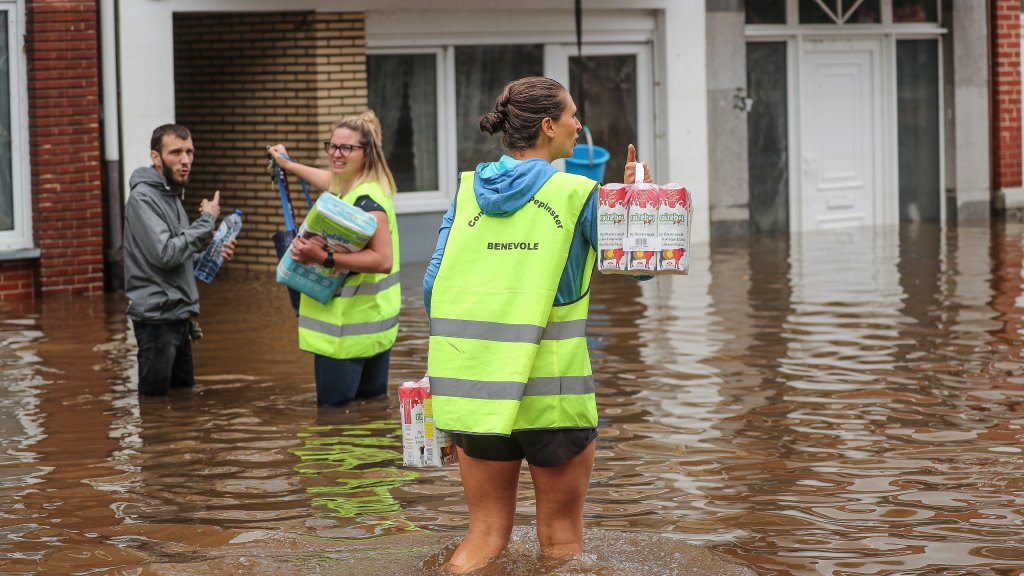Areas that have already suffered heavy rain and flooding could now face the threat of infectious diseases, according to the European Centre for Disease Prevention and Control (ECDC).
The Centre is currently carrying out a rapid risk assessment in the affected parts of Belgium, the Netherlands, Germany and Luxembourg.
People in the regions affected have already lost homes, belongings and in many cases lives, and now lurks the danger of diseases caused by poor sanitation, with household facilities and public drains being wrecked by the volumes of water, while water already infected is simply standing now, waiting to be pumped away.
The Centre draws attention to a number of possible risks: E. coli, norovirus, rotavirus, Cryptosporidium, Giardia, Campylobacter, different Salmonella enterica serotypes, Shigella, and hepatitis A. Other diseases such as leptospirosis and tetanus may also occur more frequently.
The risk is present not only for survivors of the floods, but also for aid workers, including those who are making a private effort to bring relief to the people of the region.
To reduce the risk of waterborne infections, the Centre issued some advice:
• Drink only clean, safe water and eat only food that has not been in contact with floodwater or surfaces that have been in touch with floodwater;
• Do not use floodwater or water that has been in touch with floodwater for personal hygiene (e.g. washing or brushing teeth);
• Do not use floodwater to wash dishes wash vegetables or fruits, cook food or prepare baby food;
• Listen to and follow advice from authorities if and when the tap water is safe to drink;
• When in doubt, throw away any food and water that may have come into contact with floodwater.
Aside from floodwater, another risk comes from sheltering conditions provided for people made homeless by the floods, with people brought together in close proximity in conditions likely to ease the spread of gastrointestinal and respiratory illnesses, as well as Covid-19.
“While volunteering, assisting or staying in shelters, face masks should be worn at all times, hand hygiene and respiratory hygiene measures should be practised,” the Centre said.
“Additionally, risks of vaccine-preventable diseases such as tetanus or hepatitis A should be assessed and all those without updated vaccinations should receive a booster dose. Vaccination programmes should continue to operate as much as possible, prioritising COVID-19 vaccination of the elderly and other risk groups, and MMR vaccination.”

